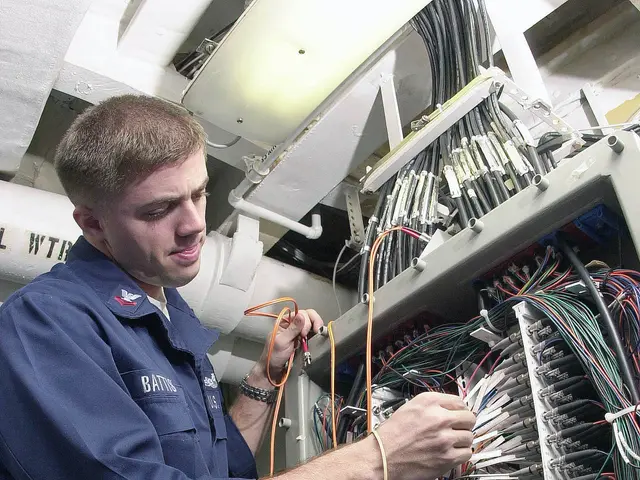Cloud-based shift for NCC as they embrace Dassault Systèmes' 3DEXPERIENCE platform
In the ever-evolving world of aerospace manufacturing, several significant strides are being made to improve efficiency, sustainability, and innovation. Here are some of the latest developments in the industry.
Martin Burns, an aerospace specialist at Exactaform, recently discussed the use of CFRP drilling and stack material solutions in a Q&A. The conversation highlighted the potential benefits these solutions could bring to the aerospace manufacturing sector.
Meanwhile, NCC, a company at the forefront of technological advancements, has been using Dassault Systèmes' solutions for over a decade. In a groundbreaking move, NCC has adopted the 3DEXPERIENCE platform on the cloud, a decision that is set to revolutionise their research and innovation.
The 3DEXPERIENCE platform will not only be at the core of NCC's operations but has also been extended to other innovation centres within the UK High Value Manufacturing Catapult network. This expansion aims to foster collaboration and facilitate the sharing of knowledge and resources.
Mark Summers, CTO of NCC, stated that this move will improve collaboration, innovation, and delivery. The platform provides rapid access to a collaborative environment and AI-powered virtual twin experiences, making it an ideal tool for the modern age.
The shift to a cloud-based platform approach is not just limited to NCC. Brookhouse Aerospace has invested over £500,000 in additional machinery to extend its engineering capabilities, as part of the company's wider growth and investment strategy.
The use of advanced materials like composites is common in today's industries for creating better, longer-lasting products with less waste. In fact, an estimated 50% of new aircraft are made of composites. Syensqo's PRISM EP2400 epoxy resin system, in combination with Teijin Carbon's Tenax IMS65 E23 24K Non-Crimp Fabrics and woven unidirectional reinforcements, has achieved FAA-sponsored NCAMP qualification, further cementing the importance of composites in the aerospace sector.
The industry is also seeing a rise in the use of artificial intelligence and 3D printing. A consortium led by Honeywell has received UK government funding for a project that aims to revolutionise how critical aerospace technologies are manufactured in the UK using AI and additive manufacturing. The consortium includes heavyweights like Boeing, Triumph Group, and BAE Systems.
The project's success could lead to a significant reduction in the time and cost required to produce critical aerospace components. Gianmarco Pisati, technology sales manager at CNC machine tool specialist Jobs, discussed the challenges of CNC machining honeycomb cores and the need for today's CNC machining tools to adapt to these materials.
Lastly, Lockheed Martin will upgrade the Republic of Korea Air Force's F-16 Block 52 flight simulators to mirror the advanced capabilities of its modernised F-16 Viper (F-16V) aircraft. This upgrade will ensure that the Korean Air Force remains at the cutting edge of aerospace technology.
These developments underscore the rapid pace of innovation in the aerospace sector. As these technologies continue to evolve, we can expect to see even more impressive advancements in the near future.
Read also:
- Federal Funding Supports Increase in Family Medicine Residency Program, Focusing on Rural Health Developments
- Potential Role of DHA in Shielding the Brain from Saturated Fats?
- Alternative Gentle Retinoid: Exploring Bakuchiol Salicylate for Sensitive Skin
- Hanoi initiates a trial program for rabies control, along with efforts to facilitate the transition from the dog and cat meat trade industry.








